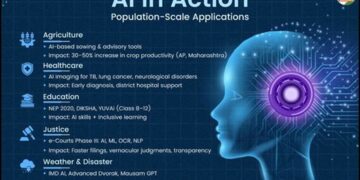By: Mehvish Shakeel
In today’s interconnected world, social media has become a dominant platform for information sharing and social interaction. While it offers numerous benefits, its role in contributing to widespread anxiety cannot be ignored. Anxiety fueled by the content shared online, is becoming increasingly common, affecting people’s mental well-being. Social media platforms are flooded with stories of individuals battling severe health conditions, such as cancer, kidney failure, and heart disease. When users come across these narratives, it often leads to fear and a heightened awareness of their own health.
Upon noticing minor symptoms, people often turn to search engines, which link common symptoms to serious diseases. For example, a simple headache could be associated with brain tumors, creating a disproportionate fear of life-threatening conditions. This phenomenon amplifies anxiety and leads to a cycle of obsessive symptom checking and self-diagnosis.
The fear of rare diseases is also triggered by the widespread sharing of rare and dramatic medical cases as social media makes them appear more common than they are. This skewed perception heightens unnecessary worry. Similarly, the increasing number of reports about young people succumbing to sudden cardiac arrest has contributed to death anxiety. Seeing headlines and social media posts detailing unexpected deaths often leads individuals to ruminate about their own mortality.
What has come to be known as ‘Catastrophic Thinking’ is triggered by social media when people with anxiety tend to overestimate risks and focus on worst-case scenarios, believing that sudden death could happen to them at any moment. News of celebrity deaths or videos discussing heart health can become viral triggers, causing mass anxiety among users with no pre-existing health issues.
Remedies to Combat Social Media-Induced Anxiety:
Limit Social Media Use
Reducing screen time and taking regular breaks from social media can decrease exposure to anxiety-inducing content. Designate specific times for social media use instead of constant scrolling.
Avoid Symptom Searching Online
Resist the urge to search for health-related information without consulting a healthcare professional. Trust qualified doctors instead of relying on unverified online sources.
Follow positive and balanced content to curate your social media feed to include uplifting, factual, and balanced health information. Follow reliable health organizations rather than alarmist accounts.
Practice Mindfulness and Cognitive Reframing
Mindfulness Techniques: Meditation and breathing exercises help ground you in the present moment, reducing catastrophic thinking.
Cognitive Behavioral Therapy (CBT): Reframing negative thoughts into rational perspectives helps break the cycle of fear.
Seek Professional Help
If social media-induced anxiety becomes overwhelming, consider therapy or counseling. A mental health professional can provide tailored strategies to cope with anxiety.
Engage in Physical Activity
Regular exercise improves mood, reduces stress, and decreases anxiety. Activities like walking, yoga, or cycling can significantly enhance mental health. Connect with Supportive Communities Sharing experiences with others facing similar challenges can foster a sense of understanding and support. Choose groups focused on positivity and solutions rather than fear.
Conclusion
Social media is a powerful tool, but it can also be a source of significant anxiety. Understanding its impact on mental health and adopting strategies to mitigate its influence is essential. By limiting exposure to anxiety-inducing content, practicing mindfulness, and seeking professional help when needed, individuals can regain control of their mental well-being. Prioritizing real-life connections and focusing on evidence-based health practices can lead to a healthier and more balanced approach to life.
The writer has a Masters in clinical psychology.



